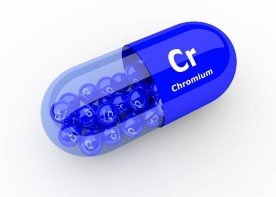
Hey there weight loss warriors! Struggling to shed those stubborn extra pounds? Coffee-based supplements are all the rage, promising to melt away pounds. But do they work? In this science-backed post, we’ll explore the truth behind coffee and weight loss. And we’ll attempt to answer questions like ‘Does drinking coffee help with weight loss?’, or ‘Does coffee boost metabolism?’. Let’s dive in!
What’s in Coffee that Can Help Weight Loss?
Coffee has many bioactive compounds, (caffeine, chlorogenic acids, theobromine, theophylline, polyphenols, magnesium, and niacin) to name a few. All, support weight loss, metabolism, or appetite control. Natural supplements containing the bioactive compounds–catechins, theanine, chromium, and amino acids L-Carnitine, and L-Theanine–also have the potential to support weight loss. When combined with coffee, a synergistic effect occurs that speeds up metabolism and fat burning.

Is Taking Natural Supplements with Coffee a Magic Bullet?
It’s important to note that while individual components of coffee and of natural supplements working together may have promising effects. However, it isn’t exactly a “magic bullet”. To achieve significant and lasting weight loss is a complex and multifaceted endeavor.
Typically, adopting a holistic approach is the key to long-term success. This includes a nutritious and satisfying eating plan. Managing stress to reduce cortisol production, and addressing potential underlying hormonal or metabolic imbalances. As well as embracing simple techniques to help mediate emotional eating and environmental factors. Our mission is to provide you with information and resources to help you successfully take on these varied issues.
The Holistic Approach to Weight Loss
At Natural Weight Loss Hub, we believe the most effective approach to sustainable weight loss includes:

- Modifying your eating plan to include a variety of delicious, nutrient-dense, and high-fiber foods that accelerate your metabolism. Check out our easy, guilt-free recipes for weight loss.
- Drinking adequate amounts of water daily to properly hydrate your cells and support metabolic functions. Read our post on the Secrets of Water.
- Replacing sugar-laden snacks and treats with healthier snacks that are naturally sweet such as low-glycemic fruit. And with delicious desserts sweetened with natural alternative sweeteners such as stevia, monk fruit, and Swerve. This is an essential step. As eating sugary foods can cause blood sugar fluctuations, imbalances of the hunger and satiety hormones insulin, ghrelin, and leptin. And imbalances in gut bacteria that can result in food cravings, and impaired nutrient absorption.
- Getting adequate sleep. Lack of sleep can also disrupt the body’s hormonal balance, particularly affecting hormones related to hunger and satiety.
- Supplementing with vitamins, minerals, enzymes, and other phytonutrients. This can help you overcome nutrient deficiencies, and hormonal and gut microbiome imbalances that may be impeding your weight loss.
Does Coffee-Related Natural Supplements Work?
Our response to that question is, it depends on your expectations.
- If you expect to lose 3-4 lbs a week while regularly eating cheese burgers, fries, and sugary desserts. And then counteract that by simply drinking a daily cup of coffee containing a natural weight loss supplement. In our opinion, that’s not a very realistic expectation.
- If you expect to lose 3-4 lbs after just 1-week of eating nutrient-dense foods. Of increasing your water intake, improving your sleep, using healthy alternative sweeteners, and drinking a daily cup of coffee containing a natural supplement… again, we believe this is an unrealistic expectation.
The Good News About Coffee for Weight Loss
However, many natural compounds in coffee and coffee-based weight loss supplements can, indeed, support weight loss. These phytonutrients and bioactive compounds may help repair underlying damage and imbalances that impede successful weight loss. However, expecting to lose weight within a day or two is unrealistic. Likewise, expecting to lose weight while regularly overeating, or routinely eating nutrient-depleted foods, is also unrealistic.

[Affiliate Disclosure: This is an affiliate link. We may earn a commission at no additional cost to you if you click and make a purchase.]
Yet, if used properly and with realistic expectations, coffee combined with certain natural supplements can safely aid in boosting your metabolism and accelerating your weight loss results. This is backed by scientific research. Let’s take a look at the science behind coffee for weight loss. And we’ll also look at the bioactive compounds that work synergistically with coffee.
The Science Behind Natural Compounds for Weight Loss

So what are the natural phytonutrients that can actually help improve your weight loss results? And that when taken together with coffee, can have a synergistic fat burning effect? Here are six natural compounds that support weight loss. Camellia sinensis,Chlorogenic acid, L-Carnitine, L-Theanine, Chromium, and GreenSelect Phytosome. Let’s take a look at how each of these bioactive compounds can work to improve weight loss results.
1. Chlorogenic Acids

Chlorogenic acid is a natural compound found in various plant foods. Most notably in green coffee beans and certain fruits like apples, blueberries and pears. It’s recognized for its potential health benefits. It supports metabolism and regulates blood sugar levels, which can be beneficial for weight management.
How it works:
- Metabolism Support: Chlorogenic acids may help boost metabolism by inhibiting the enzyme glucose-6-phosphatase. This can reduce the absorption of glucose in the intestine and lower blood sugar levels, potentially leading to weight loss.
- Blood Sugar Regulation: Chlorogenic acid helps regulate blood sugar levels by slowing the absorption of carbohydrates and reducing the release of glucose into the bloodstream after meals. This effect is particularly beneficial for individuals with insulin resistance or type 2 diabetes.
Studies Supporting its Effectiveness:
- A study published in The American Journal of Clinical Nutrition in 2007 found that chlorogenic acid supplementation reduced glucose absorption and increased insulin sensitivity in healthy individuals.
- Another study in the Journal of Nutritional Biochemistry in 2013 demonstrated that chlorogenic acid supplementation improved glucose tolerance and insulin sensitivity in mice fed a high-fat diet, suggesting its potential in managing metabolic disorders.
These studies suggest that chlorogenic acid may indeed offer promising benefits for metabolism, blood sugar regulation, and weight loss support. However, further research is needed to fully confirm its efficacy and optimal dosage for therapeutic use.
2. Camellia sinensis

Camellia sinensis is the plant species from which green, black, white, and oolong teas are derived. These teas contain various bioactive compounds. Catechins, theanine, and caffeine. These are known to offer several health benefits, including support for metabolism, blood sugar regulation, and weight loss.
How it works:
- Metabolism Support: The catechins found in Camellia sinensis, particularly epigallocatechin gallate (EGCG), increases fat oxidation and thermogenesis. This can help boost metabolism and calorie expenditure.
- Blood Sugar Regulation: Research suggests that compounds in Camellia sinensis, such as catechins and theanine, may improve insulin sensitivity and reduce blood sugar levels. It does this by enhancing glucose uptake in cells and inhibiting glucose production in the liver. Which can result in improved weight management.
- Weight Loss: The combination of caffeine and catechins in Camellia sinensis has been found to promote weight loss. It does this by increasing energy expenditure, fat oxidation, and satiety, thereby reducing calorie intake.
- Fat Oxidation: Green tea extract has been found to stimulate fat oxidation. This is the process by which stored fat is broken down and converted into energy. By promoting fat metabolism, green tea extract may aid in reducing body fat accumulation. Particularly when used in conjunction with a calorie-conscious diet and regular physical activity.
- Appetite Control: Some studies suggest that green tea extract may also help suppress appetite. This can reduce food intake by affecting appetite-regulating hormones and neurotransmitters. Green tea extract may help curb cravings and reduce calorie intake by improving feelings of fullness and satiety.
Studies Supporting its Effectiveness:
- A meta-analysis published in The American Journal of Clinical Nutrition in 2009 concluded that catechin-caffeine mixtures found in Camellia sinensis can significantly decrease body weight and maintain weight loss. This meta-analysis reviewed 11 randomized controlled trials and found that green tea extract derived from Camellia sinensis significantly reduced body weight and BMI compared to a placebo.
- Another study published in The Journal of Nutrition in 2008 demonstrated that green tea catechins combined with caffeine increased energy expenditure and fat oxidation, led to significant reductions in body weight and waist circumference.
- Another meta-analysis published in The Cochrane Database of Systematic Reviews in 2012 examined 15 randomized controlled trials and found that green tea preparations containing catechins led to statistically significant reductions in body weight and waist circumference.
These findings suggest that Camellia sinensis in the form of green tea extracts, can be beneficial for metabolism, blood sugar regulation, and weight loss. However, it’s essential to note that individual responses may vary. Incorporating Camellia sinensis into a balanced diet and lifestyle is key for optimal results.
3. Chromium

Chromium is a mineral that plays a crucial role in the metabolism of carbohydrates, fats, and proteins. This mineral is often touted for its potential to support metabolism, regulate blood sugar levels, and support weight loss.
How it works:
- Metabolism Support: Chromium enhances the action of insulin, a hormone responsible for managing blood sugar levels and facilitating the uptake of glucose into cells for energy production. By improving insulin sensitivity, chromium may promote efficient metabolism and energy utilization.
- Blood Sugar Regulation: Chromium helps maintain normal blood sugar levels by improving insulin sensitivity and promoting glucose uptake into cells. This action can help prevent spikes and crashes in blood sugar levels. These spikes and crashes are associated with increased risk of diabetes and other metabolic disorders.
Studies Supporting its Effectiveness:
- A meta-analysis published in Clinical Obesity in 2019 reviewed 15 randomized controlled trials and concluded that chromium supplementation significantly improved glycemic control and insulin sensitivity in individuals with type 2 diabetes.
- Another meta-analysis published in Nutrition Reviews in 2015 examined 28 randomized controlled trials and found that chromium supplementation improved fasting glucose levels and insulin sensitivity in individuals with insulin resistance or diabetes.
These studies suggest that chromium supplementation can be beneficial for metabolism and blood sugar regulation. And may be particularly beneficial for individuals with insulin resistance or diabetes. However, it’s essential to consult with a healthcare professional before starting any supplementation regimen. Chromium doses and forms may vary based on individual needs and health status.
4. L-Carnitine

L-Carnitine is a naturally occurring compound synthesized in the body from the amino acids lysine and methionine. It is also available as a supplement. L-Carnitine facilitates the transport of fatty acids into the mitochondria, where they are oxidized to produce energy. L-Carnitine is often promoted for its potential to support metabolism, blood sugar control, and weight loss.
How it works:
- Metabolism Support: L-Carnitine helps transport long-chain fatty acids into the mitochondria, where they undergo beta-oxidation to generate energy. By improving fatty acid utilization, L-Carnitine can potentially support metabolism and increase energy production, which may aid in weight management and physical performance.
- Blood Sugar Regulation: L-Carnitine has been suggested to improve insulin sensitivity and glucose metabolism. Some studies indicate that L-Carnitine supplementation may enhance glucose uptake in skeletal muscle cells and reduce oxidative stress, thereby contributing to better blood sugar regulation.
- Energy Production: By facilitating the oxidation of fatty acids, L-Carnitine helps generate ATP, the primary energy currency of cells. This increased energy production can potentially enhance exercise performance and endurance. This would allow individuals to engage in more intense physical activity and burn more calories.
- Muscle Recovery: L-Carnitine may also aid in muscle recovery and reduce exercise-induced muscle damage. By promoting the clearance of metabolic waste products and reducing oxidative stress, L-Carnitine supplementation can support faster recovery between workouts, enabling individuals to maintain a consistent exercise regimen for weight loss.
Studies Supporting its Effectiveness:
- A study published in the American Journal of Clinical Nutrition in 2020 investigated the effects of L-Carnitine supplementation on insulin sensitivity in overweight and obese individuals. The study found that L-Carnitine supplementation improved insulin sensitivity and lipid profiles, suggesting its potential in metabolic health.
- Another study published in Diabetes, Obesity & Metabolism in 2017 evaluated the effects of L-Carnitine supplementation on glucose metabolism in individuals with type 2 diabetes. The study reported improvements in insulin sensitivity and glucose disposal rates following L-Carnitine supplementation, indicating its potential therapeutic role in managing diabetes.
- Another meta-analysis published in Obesity Reviews in 2019 examined 9 randomized controlled trials and found that L-Carnitine supplementation was associated with a significant reduction in body weight and body mass index (BMI) compared to a placebo.
These studies suggest that L-Carnitine may offer benefits for metabolism and blood sugar regulation. It may be particularly beneficial for overweight individuals, and those with insulin resistance or type 2 diabetes. However, always consult with a healthcare professional before starting any supplementation regimen, especially if you have underlying health conditions.
5. L-Theanine

L-Theanine is a naturally occurring amino acid primarily found in tea leaves, particularly in green tea. It’s known for its calming and relaxing effects on the mind and body, often used to reduce stress and anxiety. While L-Theanine isn’t directly linked to metabolism and blood sugar regulation, its stress-reducing properties can indirectly benefit these areas.
How it works:
- Stress Reduction: L-Theanine promotes relaxation by increasing levels of neurotransmitters such as GABA (gamma-aminobutyric acid), serotonin, and dopamine in the brain. By reducing stress and anxiety, L-Theanine can help lower cortisol levels, which in turn may support healthier metabolism and blood sugar regulation.
- L-Theanine’s direct effects on metabolism and blood sugar regulation are limited. However, its ability to address stress-related factors can indirectly contribute to metabolic health. Chronic stress and elevated cortisol levels have been linked to insulin resistance, weight gain, and disturbances in blood sugar levels. By promoting relaxation and reducing stress, L-Theanine may help mitigate these effects.
Studies Supporting its Effectiveness:
- A study published in Biological Psychology in 2007 found that L-Theanine supplementation reduced stress responses and improved cognitive performance in response to acute stressors.
- Another study published in The American Journal of Clinical Nutrition in 2016 reported that green tea consumption, which contains L-Theanine, was associated with lower prevalence of obesity and improved metabolic health markers in a Japanese population.
These studies indirectly suggest the potential benefits of L-Theanine for metabolism and blood sugar regulation through its stress-reducing effects. However, more research is needed to fully understand its mechanisms and direct impacts in these areas. As always, it’s advisable to consult with a healthcare professional before incorporating supplements into your routine, especially if you have underlying health conditions.
6. GreenSelect Phytosome

GreenSelect Phytosome is a patented form of green tea extract. It combines green tea polyphenols with phospholipids to enhance bioavailability and absorption. It’s often used as a dietary supplement for weight management due to its potential to support metabolism, fat oxidation, and appetite control.
How it works:
- Metabolism Support: Green tea polyphenols, particularly epigallocatechin gallate (EGCG), have been shown to increase thermogenesis and energy expenditure, thereby boosting metabolism and calorie burning. GreenSelect Phytosome’s enhanced bioavailability allows for better absorption of these polyphenols, potentially maximizing their metabolic benefits.
- Fat Oxidation: EGCG and other polyphenols in green tea extract have been found to promote fat oxidation, the process by which stored fat is broken down and converted into energy. By stimulating fat metabolism, GreenSelect Phytosome may help facilitate weight loss and fat loss, particularly in conjunction with a calorie-controlled diet and regular physical activity.
- Appetite Control: Some studies suggest that green tea extract may help suppress appetite and reduce food intake by affecting appetite-regulating hormones and neurotransmitters. Meaning, GreenSelect Phytosome may contribute to weight management by promoting feelings of fullness and reducing calorie consumption.
Studies Supporting its Effectiveness:
- A randomized, double-blind, placebo-controlled study published in Phytomedicine in 2009 investigated the effects of GreenSelect Phytosome on weight loss in overweight subjects. The study found that participants who received GreenSelect Phytosome supplementation experienced greater reductions in body weight, BMI, and waist circumference compared to those who received a placebo.
- Another study published in Phytotherapy Research in 2010 evaluated the effects of GreenSelect Phytosome on weight loss and metabolic parameters in obese individuals. The study reported significant reductions in body weight, BMI, and waist circumference in the GreenSelect Phytosome group compared to the placebo group.
These studies suggest that GreenSelect Phytosome may be effective for supporting weight loss and improving metabolic parameters in overweight and obese individuals. However, individual results may vary, and incorporating GreenSelect Phytosome into a comprehensive weight management plan that includes dietary modifications and regular physical activity is recommended for optimal results.
But Are Coffee-Based Weight Loss Pills Safe?
The primary component in coffee, and in coffee-based weight loss supplements that concerns most people is caffeine. Caffeine is generally considered safe in moderate amounts (2-4 cups per day). However, consuming large doses or combining multiple caffeine-containing products can lead to adverse effects such as insomnia, jitteriness, and increased heart rate. Individuals with underlying health conditions or sensitivity to caffeine should exercise caution when using coffee-based supplements. Not to sound like a broken record here, but it’s always best to consult your healthcare provider before taking any supplement.
Important Takeaways
There you have it, weight loss warriors. An arsenal of nature’s weight loss allies. So, does drinking coffee help with weight loss? Can coffee boost the metabolism for weight loss? Research seems to suggest that drinking coffee may indeed help with weight loss.
What’s more, when a coffee-based weight loss supplement contains the combination of the natural compounds outlined above, it can form a synergistic effect and interact in ways that enhance their effectiveness or target multiple pathways in the body simultaneously. The combined effect of these compounds is greater than the sum of their individual effects, and can produce enhanced fat burning. When paired with a nutrient-dense eating plan, and adequate sleep and hydration, a significant improvement in weight loss can be the result.
However, patience is key. For some people, noticeable changes can occur within 2-3 weeks, but significant weight loss typically takes 4-6 weeks of consistent effort (individual results may vary). These natural compounds along with your daily cup of joe, and a delicious, nutrient-dense eating plan can produce tangible, measurable, and lasting results.
Ready to explore the potential weight loss benefits of these natural ingredients for yourself? Click here to discover how this coffee-based supplement can help you reach your weight loss goals faster! (Affiliate Disclosure).
Cheers to a healthier, happier you! Until next time… Stay Fabulous!
References
- Tsang C, Taghizadeh M, Aghabagheri E, Asemi Z, Jafarnejad S. A meta-analysis of the effect of chromium supplementation on anthropometric indices of subjects with overweight or obesity. Clin Obes. 2019 Aug;9(4):e12313. doi: 10.1111/cob.12313. Epub 2019 May 21. PMID: 31115179.
https://pubmed.ncbi.nlm.nih.gov/31115179/ - Di Pierro F, Menghi AB, Barreca A, Lucarelli M, Calandrelli A. Greenselect Phytosome as an adjunct to a low-calorie diet for treatment of obesity: a clinical trial. Altern Med Rev. 2009 Jun;14(2):154-60. PMID: 19594224.
https://pubmed.ncbi.nlm.nih.gov/19594224/ - Peng WQ, Xiao G, Li BY, Guo YY, Guo L, Tang QQ. l-Theanine Activates the Browning of White Adipose Tissue Through the AMPK/α-Ketoglutarate/Prdm16 Axis and Ameliorates Diet-Induced Obesity in Mice. Diabetes. 2021 Jul;70(7):1458-1472. doi: 10.2337/db20-1210. Epub 2021 Apr 16. PMID: 33863801. https://pubmed.ncbi.nlm.nih.gov/33863801/
- Sudeep HV, Shyam Prasad K. Supplementation of green coffee bean extract in healthy overweight subjects increases lean mass/fat mass ratio: A randomized, double-blind clinical study. SAGE Open Med. 2021 Mar 19;9:20503121211002590. doi: 10.1177/20503121211002590. PMID: 33796302; PMCID: PMC7983441. https://www.ncbi.nlm.nih.gov/pmc/articles/PMC7983441/
- Chen IJ, Liu CY, Chiu JP, Hsu CH. Therapeutic effect of high-dose green tea extract on weight reduction: A randomized, double-blind, placebo-controlled clinical trial. Clin Nutr. 2016 Jun;35(3):592-9. doi: 10.1016/j.clnu.2015.05.003. Epub 2015 May 29. PMID: 26093535. https://pubmed.ncbi.nlm.nih.gov/26093535/
- Kimura K, Ozeki M, Juneja LR, Ohira H. L-Theanine reduces psychological and physiological stress responses. Biol Psychol. 2007 Jan;74(1):39-45. doi: 10.1016/j.biopsycho.2006.06.006. Epub 2006 Aug 22. PMID: 16930802. https://pubmed.ncbi.nlm.nih.gov/16930802/
Important Note: The content provided on this website is for informational purposes only and has not been approved by the Food and Drug Administration. Always consult a healthcare professional before making changes to your diet or taking new supplements.
Search
Tags
benefits of natural weight loss berry smoothies Cake cayenne pepper chocolate for weight loss coffee coffee-based weight loss supplements Dessert develop healthy habits for weight loss Easy roasted vegetable recipes easy smoothie recipes Fruit green coffee beans green smoothies guilt-free snacks Healthy healthy eating healthy meal plan for weight loss healthy snacks Healthy tofu meals healthy weight loss plans herbal teas for weight loss holistic weight loss how to lose weight naturally and permanently how to maintain weight loss naturally hydration ketogenic diet low-calorie snacks macros on keto Mindfulness techniques for managing cravings and emotional eating nutrition One-Pan Roasted Vegetables with Tofu One-pan tofu recipes Oven-baked tofu and vegetables Quick tofu dinner recipes smoothies smoothie snack stay motivated on a weight loss journey tasty smoothie recipes tropical smoothies water weight loss weight loss herbs Weight loss mindset shifts for lasting results weight loss snacks





